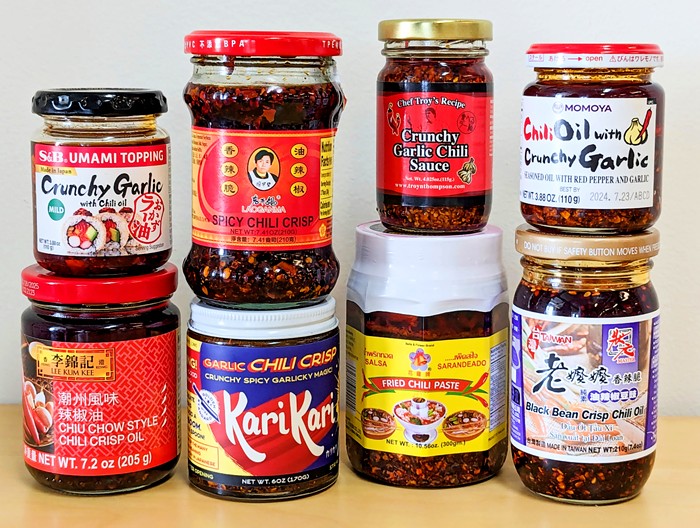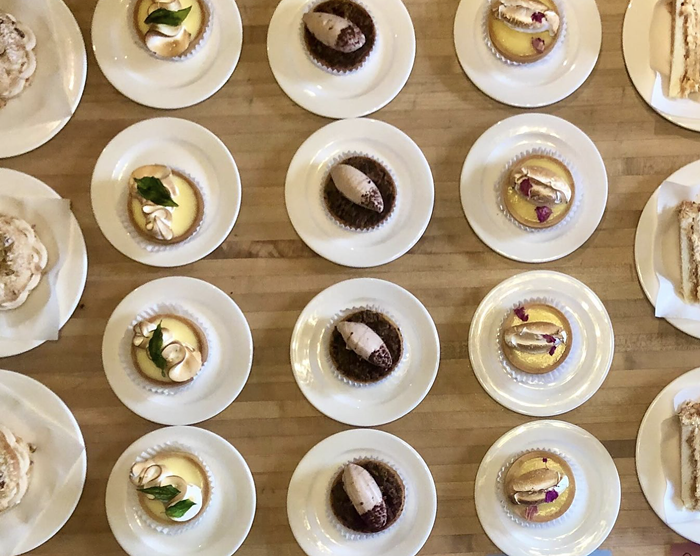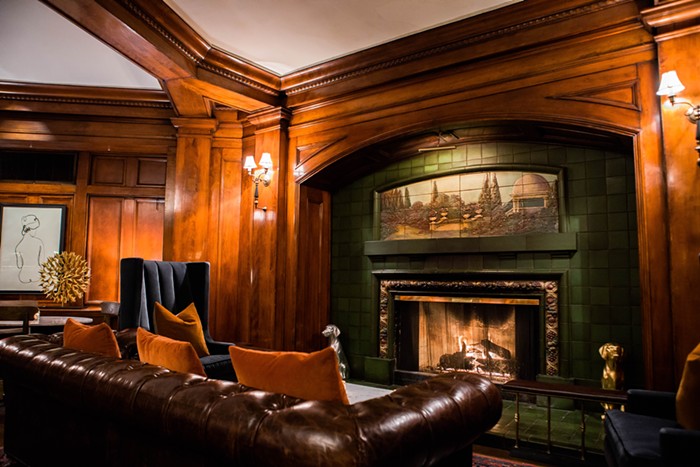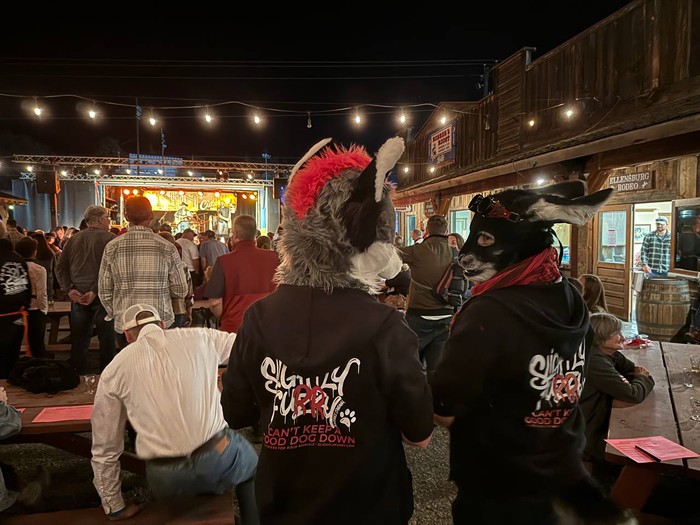Miri Plowman sits, surrounded by smallwares and appliances in the dimly lit kitchen where her dream came to life, and starts to cry. She’s been looking at photos from 2018, when she opened the beloved beach cafe, Miri’s Golden Gardens, with husband Gabe Skoda.
“We were so excited and full of hope, ready to give this thing to the community,” she says, brushing away a bouncy brown curl to wipe tears from her eyes. “I'm so sad that I couldn't figure out how to make it work without it breaking me.”
It was a unique concept: bringing scratch-made food that stands up to Seattle’s top restaurants to the beach for a more affordable price; fun, healthy fare focused on sustainability and local sourcing. From the window of the quirky blue outbuilding attached to the bathhouse at Golden Gardens Park, Plowman and Skoda served hummus and kebabs, house-made slushies and Poffertjes—tiny Dutch pancakes—to the throngs that clustered like barnacles on the Ballard shore.
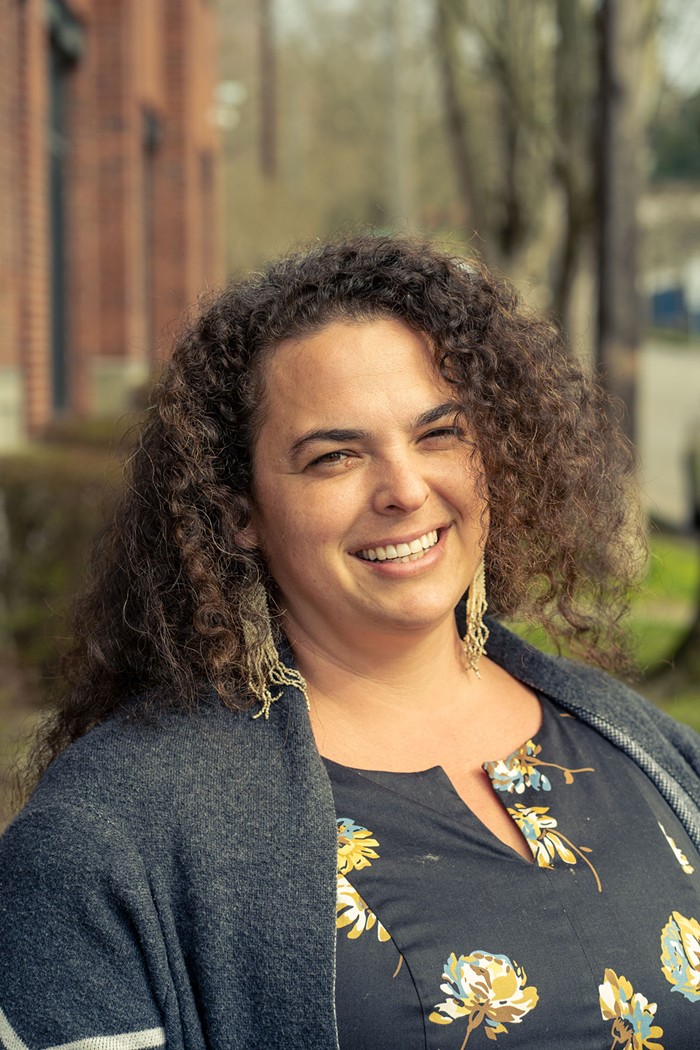
They poured everything into it, working up to 80 hours a week and amassing a following that withstood the pandemic. But on December 18, 2022, Miri’s shut its doors for the last time. They’re far from alone: Many of the city’s most successful independent food and beverage businesses survived the height of the crisis, only to recently close—yet theirs isn’t a story of pivots, PPP loans, and meals to go.
Instead, it’s the end of an era. Fueled by Pike Place Market, over a century old, and the food-centered 1961 World’s Fair, Seattle birthed a vibrant food and beverage culture: foraged and farm-to-table before it was cliché; the epicenter of the craft beer revolution; creative chefs and immigrant-run businesses showcasing sustainable, global cuisine bursting with the area’s bountiful biodiversity.
But they’re being forced out by out-of-state speculators and landlords who want proven concepts; empire-building restaurant moguls and food-media kingmakers; transplanted tech workers who follow global corporations to feed upon the city, seeking what they already know.
These phenomena aren’t unique to Seattle, but as with our music scene, what happens here ripples everywhere. Tastes are being shaped by those least connected to our daily nourishment, and it’s changing the landscape, for the real costs of Seattle’s food space are high and rising.
“I don't know how one does what we're doing, with the understanding that the money is coming from people who … are making a lot more than we make, and that somehow we're not going to have to succumb to their values,” Plowman says. “It's fundamentally impossible to run a business within the capitalist framework … that’s still values-driven.”
Yet capitalism always sows the seeds of its own destruction, and in the compost, something new can root. We put our money where our mouths are, and for Seattle’s food culture to flourish, people have to come together.
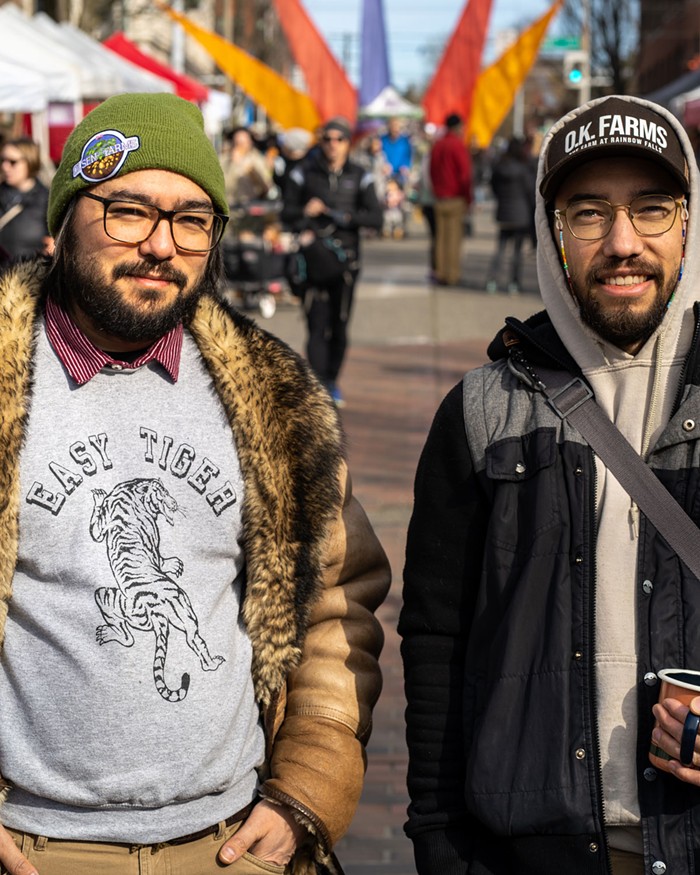
Scrappin’
Getting her space in the first place was a lucky break, Plowman says. In 2016, the Seattle Parks and Recreation Department put out a request for proposals (RFP) to run the concessions at Golden Gardens. The City of Seattle would serve as landlord, with rent owed as a percentage of sales.
“Most cooks over 30 dream of owning their own brick-and-mortar, but banks rarely award loans to such individuals,” Plowman wrote, “and angel investors or parents are almost always in the mix.” Without these resources, the RFP was their solution; Plowman applied and won. She and Skoda also catered and ran a poffertjes stand at the farmers market, where many independent owners get their start.
Zachary and Seth Pacleb, siblings and co-owners of mobile food business Brothers & Co., cut their teeth in Seattle’s top kitchens. At first, the goal was to have their own “nice sit-down restaurant doing pretty food,” Zachary says, but “the only way forward we saw was the farmers markets, because there was little to no barrier to getting in.”
View this post on Instagram
They rented space at a commissary kitchen, and for five years, ran their popular Ramen & Tacos stand at the Ballard and University Markets: hand-making tens of thousands of noodles and tortillas; scooping steaming, umami-rich noodles and broth into compostable bowls; filling clamshells with brightly-colored vegetables and locally sourced meats that tumbled over the neon sunny-sides of farm-fresh eggs.
It brought their unique vision to life, honoring their creative backgrounds, travel, and heritage as native Pacific Northwesterners of Filipino and European descent, making seasonal, sustainable dishes sourced from surrounding vendors. Between catering, pop-ups, and markets, they worked up to seven days a week in pouring rain and blistering heat, setting up and breaking down their kitchen every single time.
Seattle’s farmers-market system is among the nation’s most robust, and it shapes owners’ ethos. “There's this wealth of community and knowledge that I never would have learned at a restaurant,” Zachary says. “Those very humbling seasons of standing out in the cold with the [growers] removed a lot of the ego, … putting us on a plane with other people who are part of the ultimate goal of nourishing the community.”
It stood in stark contrast to toxic kitchen cultures. Especially in fine dining, many aspiring cooks become indentured servants to tyrannical owner-chefs, trading labor for experience, their blessing, and often their bankroll, taking whatever colleagues and customers dish out. “We didn’t want to go back to everything that had traumatized us,” Zachary says.
The American tip-based model, said to reward exceptional service, is an old master-serf custom used to surreptitiously continue slavery after the Civil War. Today’s market is built around paying workers next to nothing: Most owners who want to offer higher salaries and benefits can’t afford to, while those who can don’t have to.
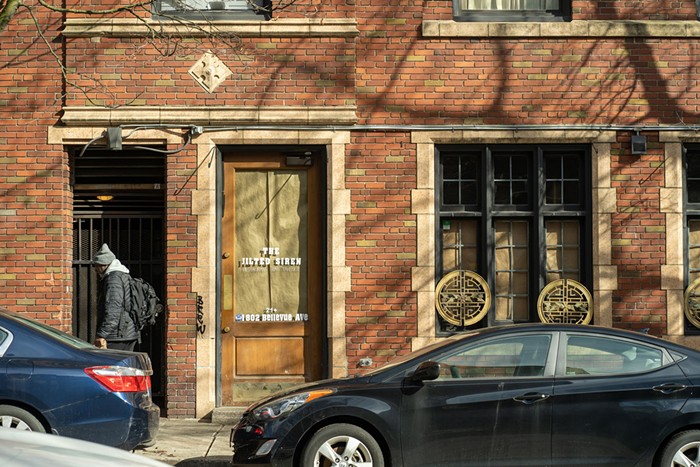
“So many places I worked at, I said, well, I'm not gonna do it that way,” says Kevin Burzell, chef and co-owner with wife Allyson Wilson of Kedai Makan, the consistently jam-packed Malaysian joint in Capitol Hill. It started as a farmers-market stand before becoming a walk-up window and, ultimately, brick-and-mortar.
Burzell and Wilson saw themselves as part of an ecosystem not only with farmers, but the International District’s family-owned specialty markets like Viet-Wah: a symbiotic view that trickled down to staff. Tips were shared equally; cooks were paid as skilled laborers; health benefits and 40-hour weeks were standard. “We were able to find and keep good people,” Burzell says, “and that was a big part of our success.”
Yet in some ways, they were also victims of it. Eschewing the prestige model allowed owners to build values-based businesses, but the industry’s razor-thin margins leave no room for error, especially with the rising cost of ingredients, labor, and electricity. As business boomed, they did everything themselves, from cooking, serving, and bartending to accounting, contract management, and maintenance while stress skyrocketed and relationships suffered. Plowman calls it being “scrappy”: big-hearted resourcefulness that comes at high personal cost. After all, there’s only so much DIY you can do before you’re worn the fuck out.
“This restaurant was a project of passion, … and somewhere, that faded,” Burzell says. “The pandemic certainly didn’t help; putting things in boxes felt so soulless.” After their final service on October 29, 2022, “I think I spent more time crying than cleaning. We put a lot of love into [this].”
COVID-19 was just the icing on a layer cake of shit that piled existential threats onto existing problems, and the reckoning some thought the pandemic might bring never really came. Those minority-owned businesses the city and customers claimed to want to support while stuck at home suffered most; Viet-Wah closed its flagship store after 41 years. Meanwhile, high-profile chefs cut staff and shut doors, then waded through the wreckage back to business as usual.
View this post on Instagram
Plowman and Skoda’s percentage-rent agreement seemed to solve one of the industry’s biggest problems: seasonality. Balance would come since they would owe less during slow times, they thought. But when the crisis struck, the City of Seattle locked the parking lot to Golden Gardens, requiring customers to walk half a mile to the cafe—then deferred, but never forgave, overdue rents.
The Pacleb brothers were blocked from their only customer-facing avenue when then-mayor Jenny Durkan shuttered the open-air farmers markets while indoor grocery chains remained open. In 2020 and 2021, Zachary was hospitalized for two series of small strokes. When Seth began having health episodes, too, they knew something had to change.
“Our individual morality and well-being are conflicting,” Zachary says. “To do what we think is right, we have to sacrifice ourselves. That’s not the way it should be.”
On December 18, 2022, they packed up their stand for the last time, but they’re not finished. Instead, they’re pursuing a worker-owned cooperative: part restaurant, part retail, ideally with CSA-like support for growers.
“We can't just disappear and expect the changes we want to see,” Seth says. “The co-op is [our] compromise for having to participate in this system, … sharing the burden and the wealth of being a business owner.”
“We're willing to put ourselves out there to try,” Zachary adds. “The only alternative is to fucking burn it all down.”
"What landlord wants to take that risk?"
Owners go to the streets when the city makes no room for them. In Seattle, space is power, and it’s increasingly out of reach for those who don’t fit a certain bill.
“For 23 years, [I’ve] been working with people who don't have any idea what it costs to open a restaurant,” says Laura Miller, the commercial real estate broker whose name is emblazoned across just about every mixed-use building and restaurant space on the Westside. “The costs [of construction, labor, and materials] … have gone up. To build out, you’re looking at a minimum of $1 million.”
Traditional lenders require would-be borrowers to meet a minimum set of requirements, says Laura Fletcher, associate director of Ventures, a nonprofit that serves low-income business owners, many from underrepresented backgrounds. These include clear tax and financial documentation, a minimum credit score, and collateral (discounted based on the current market value). This typically means inventory and equipment, vehicles—or property.
From Seattle’s inception, redlining and restrictive covenants on property ownership prevented people of Asian descent and, after internment, Black and Brown folks from living and opening businesses in the most desirable areas. Decades later, the “urban village” strategy former mayor Norm Rice launched to curb suburban sprawl concentrated development in select neighborhoods, where 40% of properties are single-family homes, perpetuating these practices.
Dion Cook, CEO of Denkym Co-Op, which supports Black-owned businesses, confirms that getting a loan in the amount needed to open a restaurant often requires property, a decent credit score, and cash up front. Many underrepresented owners don’t meet traditional lending thresholds, he says; Community Development Financial Institutions (CDFIs) can help, but are limited based on their funding source.
Those people who most need help are least likely to get it, a trend reflected in the pandemic: women business owners received an average 47% lower approval amount across all SBA lending platforms and up to 44% less in PPP funding than men, while more Black business owners requested SBA loans than white owners—yet fewer received them. Even the Washington Flex Fund, meant to extend funding outside the credit box, primarily served people who already owned successful businesses and could meet traditional lending requirements, Fletcher says.
“I’ve experienced a lot of privilege, … but also a lot of scarcity and prejudice,” says Plowman, a white woman born in Israel to an American mother and Iraqi-Jewish father. “I think my feeling of scarcity does have to do with my access to resources, and this is why I am completely exhausted.”
As Cook says, you need property to build wealth, and those who have been blocked from buying property have little recourse.
“If someone calls me and says, ‘I have $60,000,’ what kind of landlord wants to take that risk? I’m always telling my team, don't spend all your time on that person when we're never going to get a deal done,” says Miller. “But if that same person with $60,000 has three restaurants, they're all successful, and the landlord loves their food, they're going to do that deal.”
The Pacleb brothers found landlords who liked their collective model. Then they got the estimate for the buildout: nearly $2 million. “It's so hard to see a holistic solution, but [be] stuck at the financial aspect,” says Zachary. “[Investors say,] ‘Where's your capital going to come from?’ I don't know, man, you're the one with millions of dollars—you tell me.”
Buying a closing business is cheaper than a new buildout, Miller says. That’s what Burzell and Wilson did, but they had an advantage. Both white, one male, one college-educated, and with their successful walk-up window, they got a $100,000 SBA loan. Plowman and Skoda, also white, needed the RFP and a $50,000 loan through Ventures. Most owners who don’t fit the credit box, Fletcher says, use non-traditional lenders. The average amount: $3,000.
Meanwhile, loan applications are opaque, requiring technical access and proficiency, like many aspects of running a restaurant. Every one of these is a full-time job, and the business side requires a very different skill set than the creative one.
Some owners fail to realize they have a year before the end of their lease to negotiate a potential price increase, and lose their spaces because they didn’t read their contracts carefully, Miller says. But contracts are dense and often misleading. Miller recommends business coaching, which Ventures offers free for clients, but that time is a luxury the scrappy can’t always afford.
“A lot of [owners] are in enthusiastic expansion mode. They love Seattle; their numbers are better than pre-COVID,” Miller adds. “Then there's another contingency that's barely hanging on.”
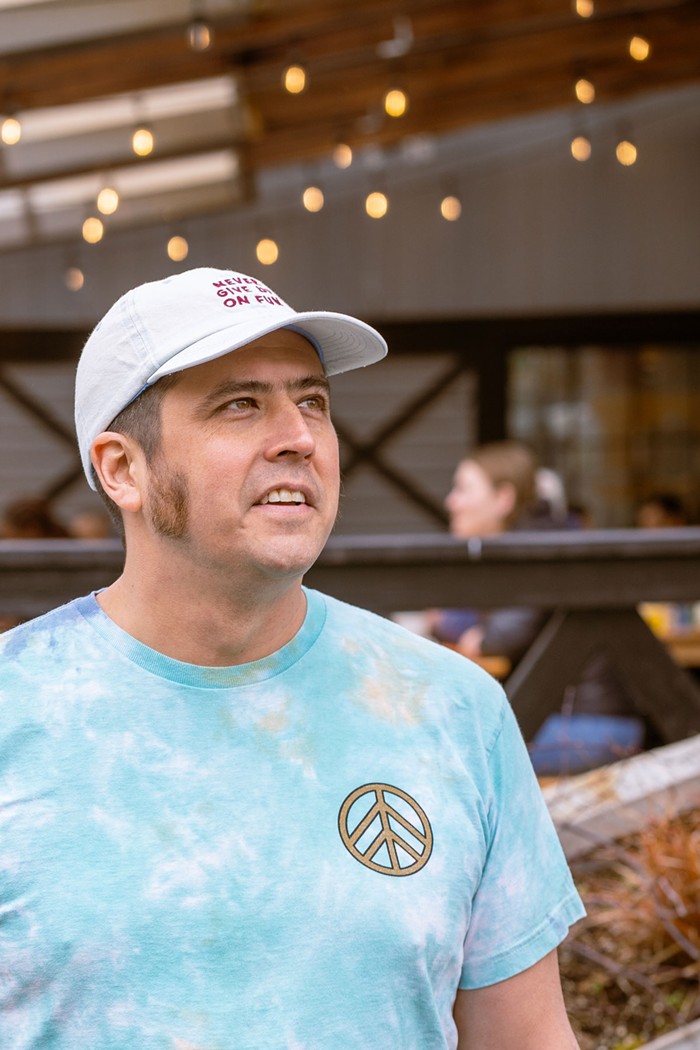
Let Seattle die?
When chef Eric Rivera calls, the city’s in his rearview. “I left Seattle today, like, forever,” he says. “I’m gonna open two restaurants in Raleigh, because there’s nothing here that’s beneficial to me.”
Rivera, an Olympia native, seeks to elevate “undesired food, meaning food from other cultures,” featuring ingredients and flavors from his native Puerto Rico in gonzo culinary mashups. What began as two-seat dinners in his apartment evolved into Addo, the dada-esque restaurant and incubator in Ballard where he hosted everything from pairings to video-game nights and Oregon Trail-themed dinners.
He once had hope for cooperative models in Seattle; Addo started as a communal space. But two years later, he hasn’t seen the city catch up.
“The rest of the market was like, ‘Okay, you're ready to bounce back.’ And I'm like, ‘That's not what's happening,’” Rivera says. Many of his former guests are still working from home, moved, or were displaced, so “you don’t even know who your market is.” Today, corporate tenants with 10-year leases are trying to force people back to half-empty buildings and forging forward with construction as the anointed class capitalizes on collapse, driving up residential property values.
This is second-wave gentrification: an economic boom that looks like a bust because it’s marked by empty space. When skyrocketing rents drive out renters and shutter small businesses, the remains are scavenged by out-of-state speculators and global corporations that only serve the very top—creating, as The Stranger ominously predicted in 2019, “a city that is no longer for people or even for businesses, but just for money, which is mostly invisible.”
The pandemic blew up this trend, hollowing the downtown core. One need look no further than the semi-apocalyptic streets where the London Plane once stood. The restaurant, larder, and flower shop was a shot in the arm for the neighborhood when co-owner Katherine Anderson and chef Matt Dillon opened it in 2012. Ten years later, “we thought more people would be living [here], not less,” co-owner Yasuaki Saito says. It closed on December 24, 2022.
View this post on Instagram
Yet second-wave gentrification has metastasized throughout the city since Amazon first colonized SLU. The average tech salary is nearly $150k, bested only by the Bay Area and New York City. For the first time, downtown neighborhoods bordering Belltown are among the city’s 10 most expensive.
Miller describes a landlord who called her that morning looking for a restaurant tenant—of a certain class. “He really wants a higher-caliber operator,” she says, “because it elevates the rent in his apartments.”
In 2021, Rivera took Addo on the road hosting cross-country pop-ups, because “sticking around and waiting for shit to happen wasn't going to be the way.” Back in Seattle, his landlord—an international management and development firm—upped the rent by 19%. His response? “You guys are fucking insane, fuck off.”
The same thing happened to Bill Arnott, owner of Machine House Brewing, the British-style cask brewery beloved by beer nerds and named for the Sodo building they’ve occupied for nearly a decade. Four years ago, a Portland-based property management firm bought it.
“They were free to raise the rent as much as they wanted, … more than we could realistically pay,” Arnott says. “I negotiated with them for a year, but they [wouldn’t] budge.” No new tenant, to his knowledge, is lined up—but maybe, Arnott says, they don’t care. This causes the hair on the back of my neck to prickle.
“The people expanding are the Ethan Stowells and Tom Douglases, … and that’s all you’re ever gonna get here,” says Rivera. “They aren’t doing anything to usher in a new guard. It’s the same names and faces, a bunch of white male chefs calling their shots.”
So should we let Seattle die? Rivera says yes; places such as Nashville and Raleigh can better serve small, independent restaurants.
“But isn't there something that's dying in all modern American cities?” asks Saito, who has two surviving restaurants. “I'm not going to give up on [Seattle], and I have peers who aren’t. Small businesses closing will leave vacuums, but there's also an opportunity for somebody to step in and do something community-centric.”
View this post on Instagram
Robin Hood vibes
The theory of creative destruction, which economist Joseph Schumpeter derived from Marxist thought, says this whole cycle is inherent to capitalism: because the system is continually over-producing, it has to destroy one form of wealth to make room for another. Yet the values that preserve it carry on.
In Seattle, there was an old-money cohort who sought white-tablecloth experiences that affirmed their status, but were willing to pay. For the new-money crowd, convenience, price, and status reign. But both commoditize food at the expense of its providers and the ecosystem.
“When someone says to any small food-business owner, ‘This is too expensive,’ … they're basically saying, ‘I don't value that you, the person who made it, deserves the same quality of life that I have,’” Plowman says.
She cites an online review of her carnitas, scratch-cooked overnight and served with molé made from farmers-market peppers: “They said, ‘The quality of the food matches the price. But I'm always hungry when I leave, so I don't see it as a value,’” she says, close to tears. “I don't want you to see it as a value. I want you to think about food as a huge privilege.”
Rivera puts it more bluntly: “Motherfucker, I know you make 200K a year! You can cosplay with me all day long in your Subaru Outback, but … you don't get to tell me how much to charge for a burger.”
Yet the burden is on exhausted owners to educate customers. “It’s the same thing with race,” says Zachary. “You need to understand your context, man. I’m trying to share a way [of eating] that is not just better for you to consume, but is better for more people than just myself.”
Some say the solution is stripped-down service; Burzell advocates more, smaller restaurants. But according to Marx, the forces of creative destruction will cause the whole system to ultimately destroy itself. Perhaps the future is collective.
“If we’re able to create small examples of a better way,” Zachary says, “we'll be able to see that the mistakes of our past can be rectified slowly, and we all have to do our part to get there.”
Still, co-ops aren’t a panacea. “It [takes] the people who stand to gain, like landlords, … business leaders, and property owners, to say, we don't want the 10-year guaranteed lease from Pizza Hut; we want a percentage-rent, no personal guarantee, five-year relationship with the person of Vietnamese-American descent,” Saito says. “You're asking somebody who's maybe not a values-based business to suddenly become that.”
Plowman plans to volunteer for Ventures to help owners like these. “I’m heartbroken about closing the shop, but also excited to try on a new way of living,” she says, adding that the industry needs people like the brothers staying in.
“Just because these corporations have the capital to bring people in from all over the place … doesn't mean they should be able to shape what the city is,” Zachary affirms. “We have to make the ask of people with the means … and find ways to put [the money] where it needs to go, without being parasitic or becoming martyrs.”
“Robin Hood vibes,” Plowman smiles.


